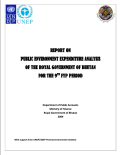
The scope of this study includes a review of public expenditure in the environment and natural resources sector, encompassing expenditure incurred by ministries, government departments and other agencies, and the local administration at the Dzongkhag and Geog levels on environment-related interventions along with all donor-supported projects of the environment sector.
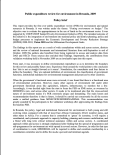
This report provides the first-ever public expenditure review (PER) for environment and natural resources in Rwanda. It was written under the theme: “Putting environment on budget.” The objective was to evaluate the appropriateness in the use of funds in the environment sector.
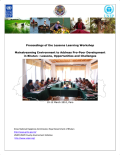
This report encapsulates the key takeaways from the Workshop held in Bhutan with two main objectives, namely, 1) to take stock of environmental mainstreaming achievements to date, including Poverty-Environment Initiative (PEI) Phase I, and, 2) to discuss the challenges and opportunities of addressing environmental mainstreaming in the future.
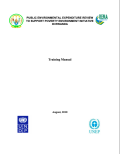
This report outlines four case studies that have been featured in several government policies, strategies and policy meetings. Top on the priority list of the activities is the formulation of supportive legislation for water use rights and fees, and tax exemptions on Liquefied Petroleum Gas (LPG).
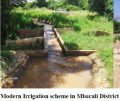
The study assessed the economic value of wetlands linked to community welfare and livelihoods. The study applied partial valuation techniques, socio-economic surveys, and literature reviews to identify livelihood activities supported by natural resources in Ihefu and levels of dependence on these resources.
